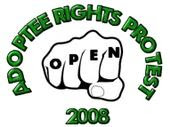
GAY CITY NEWS
July 24, 2008
Two Men Are Birth Dads
By: ARTHUR S. LEONARD
07/24/2008
Judge Lloyd Cutsumpas, of the Connecticut Superior Court in Waterbury, ordered that two gay men from New York who contracted with a Connecticut woman to be their "gestational surrogate" are entitled to have only their names listed as parents on the final birth certificate.
In a June 13 ruling, Cutsumpas rejected the state Health Department's argument that genetic testing should be used to determine which of the men is the child's genetic father and that the other father should have to adopt the child through a second-parent adoption procedure after the birth. Instead, he ruled, an "intended parent" under a gestational agreement, including one who may not be genetically related to the child, could become a legal parent by being listed on the birth certificate.
This ruling has no direct appellate precedent in Connecticut.
Peter Griffiths and Angel Naranjo are, according to the court's opinion, "registered domestic partners in the State of New York." They wanted to have a child genetically related to both of them, so Naranjo's sister donated an egg to be fertilized by Griffiths' sperm, and Griffiths' niece donated an egg to be fertilized with Naranjo's sperm. Both embryos were implanted last November in Kenisha Taylor, a Waterbury resident, who contracted with the two men to be their surrogate. One viable fetus resulted.
As part of the agreement, Taylor promised not to engage in sexual intercourse for a specified period of time to ensure that the child would be conceived from one of the implanted embryos. She says she kept her promise, which means the fetus is not genetically related to her.
Wishing to be considered equal parents of the child in every sense, Griffiths and Naranjo refrained from any genetic testing to determine which of the embryos developed into the fetus. But, in either case, they would both have a genetic relationship to their child.
State law requires a hospital to file a birth certificate naming the woman who bore the child as the mother as soon as a child is born. However, a court can order the Health Department to issue a replacement birth certificate listing the child's legal parents, which would replace the original as the formal legal documentation of the child's birth and family status.
Anticipating their child's birth this summer, Griffiths and Naranjo filed suit in the Waterbury District of the Circuit Court to get the requisite court order for a replacement birth certificate naming them as parents. Taylor, the hospital, and the state Health Department were the nominal defendants, and unexpectedly the Health Department opposed them, arguing that because a birth certificate is required to be an "accurate" public record, "only biological or adoptive parents can have their names placed on birth certificates."
The Department stated that logically, then, genetic testing is necessary to determine whether Griffiths or Naranjo is the genetic father, and only the genetic father can be listed on the certificate by a court order. The other father would have to wait for the birth to initiate adoption proceedings. After an adoption proceeding, a third birth certificate would be issued with the names of the two men as legal parents.
Griffiths and Naranjo objected, and argued that the existing law authorizes the court to declare them the "intended parents" for purposes of the replacement birth certificate. A recently-enacted Connecticut law explicitly supports this conclusion, but does not go into effect until October. With the child due earlier, the court had to rely on earlier statutes.
"This court of equity is left to fashion a remedy for the litigants using what statutes and previously decided cases are available regarding this evolving subject matter," Cutsumpas wrote.
In light of emerging reproductive technology, the Connecticut Legislature has been tinkering with its birth certificate statutes since 2001. The first draft of the revised law made explicit references to gestational surrogacy, but those references were dropped from the final version of the statute, which resulted in ambiguities only partially addressed in subsequent amendments. It was not until the 2008 amendment due to take effect in October that an explicit reference to gestational surrogacy appears.
However, in reviewing the legislative history and the court decisions interpreting prior versions of the statute, it was clear to Cutsumpas that the Legislature intended to allow the replacement certificate to be used to establish a legal birth record for this kind of case.
However, all of the previous rulings in gestational surrogacy cases involved "intended parents" who were heterosexual couples, in which at least one and usually both were definitely the child's genetic parent. In this case, the Health Department argued, since only one of the men can qualify as the father, the men must undergo a genetic marker test, with only that one having his name on the first of the revised birth certificates.
The Department also argued that "despite Taylor's testimony that she abstained from sex during the time period surrounding the conception, there was in fact a chance that neither man was the father.
Griffiths and Naranjo responded that at least one prior unpublished Connecticut trial court decision ordered that two men be listed as parents on the replacement birth certificate with no indication that genetic testing or an adoption was required. Unpublished trial court opinions are not binding legal precedents, but Cutsumpas found the Department's arguments to be "inaccurate" in any case.
He pointed out that there were prior published Connecticut Supreme Court decisions supporting the proposition that a man need not invariably have to prove genetic parentage in order for the courts to declare him a legal parent.
"It should be further noted," he wrote, "that on almost a daily basis, in our Magistrate Court and in our Superior Court, men and women are declared to be parents of children without a genetic test... Often an acknowledgment of paternity will suffice."
He concluded that even the law in effect now could be interpreted to establish parentage "by being named as an intended parent in a gestational carrier agreement."
The judge wrote that it was "unclear" why the Department insisted on a genetic test to list Griffiths or Naranjo, but seemingly had no objection to listing Taylor on the initial birth certificate, even though she "has no genetic relationship to the child"; to do so would be to record "inaccurate information, in violation of what the department states is the public policy underlying the vital records statute."
The possibility that Taylor could be a genetic parent impregnated by another man is an issue that could be raised about all gestational surrogacy situations, Cutsumpas noted, yet the Department did not routinely call for genetic testing when the intended parents were a heterosexual couple, so it was being inconsistent here.
"It is clear that the public policy of the State of Connecticut favors the issuing of orders regarding surrogate parentage," Judge Cutsumpas concluded. "Our legislative history and case law supports this view. [This] case is not about the establishment of genetic, or biological parents, but rather the establishment of legal or intentional parents. Names on a birth certificate are not necessarily just an acknowledgment of paternity but can also establish legal responsibilities to a child. In this era of evolving reproductive technology and intent-based parenthood, our laws must acknowledge these realities and not simply cling to genetic connections as preconditions to being placed on a birth certificate."
Finding that the gestational carrier agreements was "valid, enforceable, irrevocable, and of full legal effect, Cutsumpas declared that Taylor is not the parent of the unborn child, ordered that upon the child's birth, Taylor be listed on the initial certificate, and that the Health Department then must issue a replacement certificate, "removing Taylor's name and naming Peter Griffiths and Angel Naranjo as parents."
The court's opinion was issued on June 13 but did not show up on the Westlaw electronic database until July 17. Since the embryos were implanted in November, it is likely the child will be born in August.
©GayCityNews 2008
Link to article













